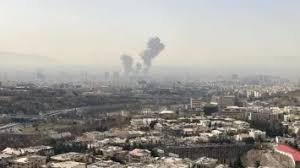AI171 probe finds no issues with aircraft or engines. But a mysterious switch cutoff and rising media speculation spark backlash from pilot bodies.
BY PC Bureau
NEW DELHI, July 15 — The preliminary report into the June 12 crash of Air India Flight AI171 has found no mechanical or maintenance faults in the Boeing 787 Dreamliner or its GE engines, and has ruled out any issues with fuel quality, takeoff roll, or the pilots’ physical or medical condition, Air India CEO Campbell Wilson said in a communication to employees on Monday.
mandatory maintenance tasks had been completed. There was no issue with the quality of fuel and no abnormality with the take-off roll. The pilots had passed their mandatory pre-flight breathalyser and there were no observations pertaining to their medical status,” it says.
The findings, based on the Aircraft Accident Investigation Bureau (AAIB)’s initial report released on July 13, provide what Wilson called “greater clarity” while also raising new questions. The report revealed that both fuel control switches had flipped from ‘RUN’ to ‘CUTOFF’ shortly after takeoff — leading to a catastrophic dual engine shutdown that caused the aircraft to crash into a building near Ahmedabad’s BJ Medical College. The disaster claimed the lives of 241 people onboard and 19 on the ground.
Wilson reassured employees and the public that every Boeing 787 in Air India’s fleet was thoroughly inspected and cleared under DGCA oversight within days of the crash. “We continue to carry out all necessary checks and will comply with any further guidance from regulators,” he said.
Acknowledging the emotional toll of the incident, Wilson stressed the need to restore passenger confidence and remain focused on the airline’s core values: integrity, excellence, safety, innovation, and teamwork.
“Let us not be diverted from our top priorities: supporting the bereaved, working together as a team, and delivering a safe and reliable experience to our passengers,” he wrote.
READ: UFO Collision With F-16 Sparks Airspace Security Debate
The preliminary report has prompted global safety responses and sparked strong opposition from Indian pilot unions, who condemned emerging media speculation suggesting deliberate pilot action.
Etihad, South Korea Announce Safety Checks on Boeing 787
In response to the AAIB’s findings, Etihad Airways issued a safety bulletin on July 12 advising pilots to exercise caution with fuel control switches on Boeing 787 aircraft. The airline also ordered technical inspections of the locking mechanisms and instructed engineers to verify proper engagement of these features.
On Aircraft Accident Investigation Bureau released preliminary report on the Air India plane crash, Air India CEO Campbell Wilson says, “The Preliminary Report found no mechanical or maintenance issues with the aircraft or engines, and that all mandatory maintenance tasks had… pic.twitter.com/f3BFRKKd8x
— ANI (@ANI) July 14, 2025
Separately, South Korea’s Ministry of Land, Infrastructure and Transport is preparing similar directives for its carriers. While Boeing and the US Federal Aviation Administration (FAA) have stated that the switch design does not present an unsafe condition, airlines are acting “out of an abundance of caution.”
Indian Pilot Unions Decry ‘Baseless’ Suicide Theories
In India, the report’s reference to fuel cutoff has led to media speculation about possible pilot suicide, drawing harsh criticism from pilot bodies.
The Indian Commercial Pilots’ Association (ICPA) and Airline Pilots’ Association (ALPA) of India called such theories irresponsible and insensitive. “There is absolutely no basis for such claims at this stage,” the ICPA said. “These suggestions dishonor the memory of the crew and deepen the trauma of grieving families.”
Fueling the speculation is a brief and unexplained exchange from the cockpit voice recorder (CVR), in which one pilot allegedly asked, “Why did you cut off?” to which the other responded, “I didn’t.” Unions insist that without the full transcript, such excerpts risk being misinterpreted.












